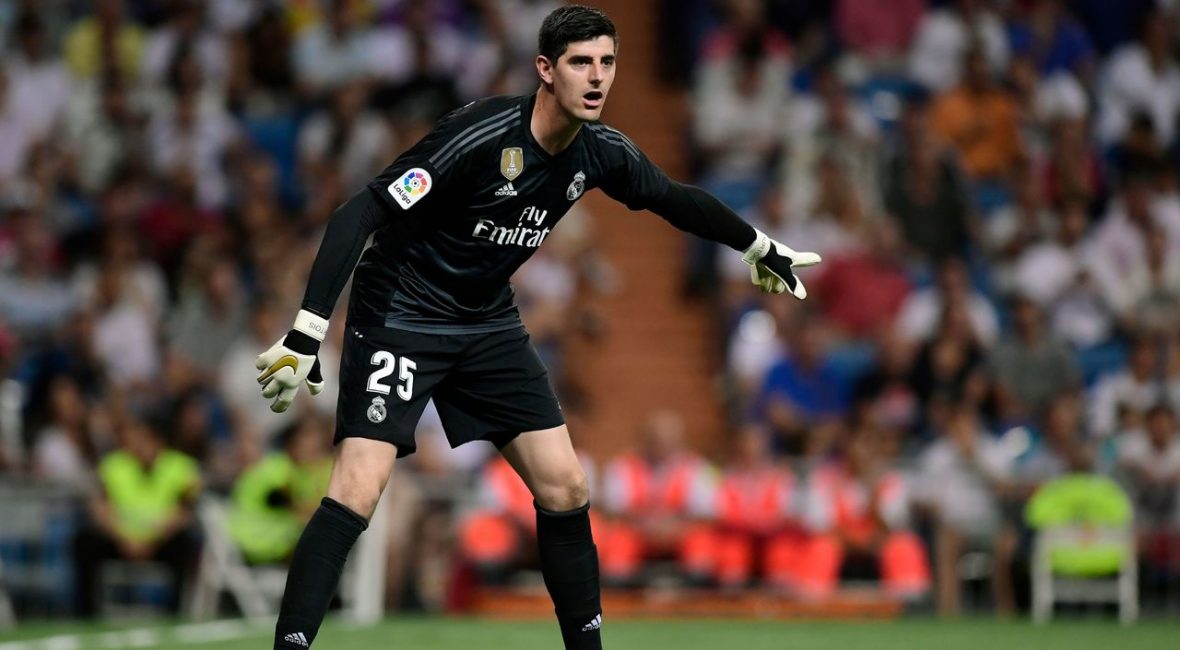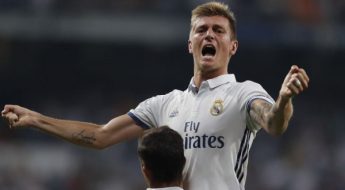6 biggest snubs from the FIFPro World XI

The latest FIFPro World XI was revealed at The Best FIFA Football Awards ceremony in London on Monday and, as usual, it drew anger from many wanting to see their favorite players among a lineup of the globe’s greatest.
Related – FIFPro World XI: French trio named alongside Messi, Ronaldo
Here, theScore picks out the most glaring omissions from the XI as voted for by 25,000 professional footballers.
Thibaut Courtois

This one is pretty simple: How can Manchester United’s David De Gea be named between the sticks for the FIFPro World XI, but not be deemed The Best FIFA Goalkeeper?
That distinction was reserved for Courtois, who spared further blushes for Chelsea during a limp defense of their Premier League title in 2017-18, and was then elastic for Belgium en route to a third-place finish at the World Cup. He made more saves (27) than any other goalkeeper at the tournament – De Gea made only one stop in four appearances for Spain.
He is now donning the gloves for Real Madrid after grabbing two Premier League titles, an FA Cup, and League Cup while at Chelsea.
Harry Kane

By Kane’s standards, he was shot-shy at the World Cup; Aleksandar Mitrovic and Toni Kroos fired more efforts at the onion bag despite bowing out at the group stage. Still, the Tottenham Hotspur idol eased to the Golden Boot with six goals in six appearances, three of which were penalties.
With Monday’s individual awards weighing so heavily on World Cup showings, it will be a surprise to some that he’s omitted from the world’s best starting lineup.
And that’s without taking his Spurs feats into consideration. Although he was outmuscled by Mohamed Salah for the Premier League top-scorer honor, he struck 30 goals in 37 outings in the top flight and helped shrug off Tottenham’s struggles on the continent with seven tallies in seven matches.
Toni Kroos

If one German should be spared blame for the country’s disastrous group-stage exit at the World Cup, it is Kroos.
The midfielder’s passing accuracy stood at 93.1 percent when he left after three matches, and he fired an absurd, curling free-kick past helpless Swedish goalkeeper Robin Olsen in the dying seconds of their vital meeting. Eventually, it counted for naught, but it appeared Kroos had breathed life into Germany’s defense of its World Cup title.
His understated class alongside The Best FIFA Men’s Player, Luka Modric, for Real Madrid is a joy and arguably just as crucial. No La Liga regular completed more passes per 90 minutes (82.1) than the Bayern Munich product last season, and he bested all of his teammates for total key passes (64). He was similarly influential on continental duty, putting in pragmatic displays that toughened the foundation for another Champions League triumph.
Kevin De Bruyne

As Pep Guardiola would attest, Manchester City’s record-breaking Premier League title win was a team effort. However, if one player had to be singled out as the most instrumental member of the collective, De Bruyne would get the most recognition.
He led England’s first tier in assists (16) and key passes (106), completed just one fewer take-on than roaming teammate Raheem Sterling (64), and obsessively found space in his manager’s schematic to pot and skim deliveries across the park with aplomb. His work ethic and willingness to stick his foot in has also won admirers.
Then he went to the World Cup, blasting an unstoppable hit against Brazil in the quarterfinals and counting two assists overall. Eden Hazard took the majority of the plaudits for Belgium’s run to the semifinals, but De Bruyne’s achievements over the much-longer domestic term must outstrip those of his compatriot.
Thomas Meunier

Right-backs Dani Carvajal and Kyle Walker were actually named in the second team behind the FIFPro World XI. There are legitimate arguments for that pair to be in the main squad. Joshua Kimmich was then in the third team, Kieran Trippier in the fourth lineup, and Sime Vrsaljko in the fifth.
But what about Meunier?
The Belgian was another standout for his nation at the World Cup, has a knack for scoring outstanding goals, and, most tellingly for Monday’s best XI vote, was much, much better than Dani Alves over the 2017-18 campaign for Paris Saint-Germain. Maybe it was sheer habit for Alves to get a nod for the FIFPro World XI by his contemporaries, but Meunier, along with plenty of other right-backs employed in Europe, has a right to feel aggrieved.
Mohamed Salah

The records stacked up for Salah in his debut season for Liverpool, the most celebrated of which was his 32 goals in a 38-match Premier League campaign. He stands alone with that number, despite arriving on Merseyside with an adequate 15 Serie A goals in the prior term for Roma, where he was mainly tasked with teeing up Edin Dzeko.
He’s not even a striker. He also made a number of assists across the domestic and continental game. He previously flopped under Jose Mourinho at Chelsea. The script was written for him to lead Liverpool to glory in the Champions League final, but his start was cruelly cut short when he was involved in a coming together with Sergio Ramos. The Real Madrid defender will never be brought a pint in the extensive red pockets of Merseyside.
Salah was clearly nursing his injury from that tangle with Ramos at the World Cup, contributing to a disappointing group-stage elimination for Egypt. After sitting out the first match, Salah was able to register on the scoresheet against both Russia and Saudi Arabia. Little victories.




